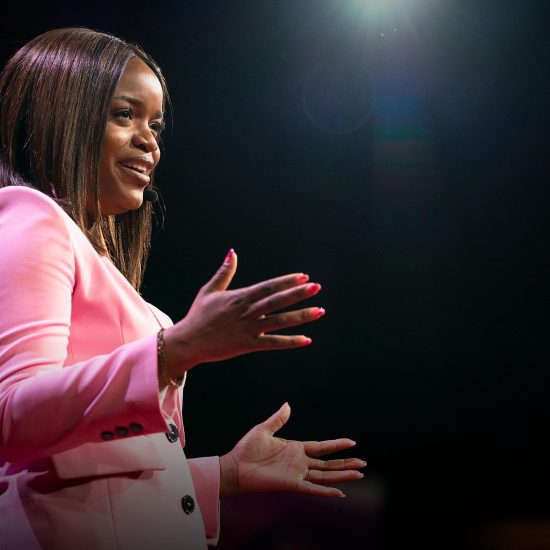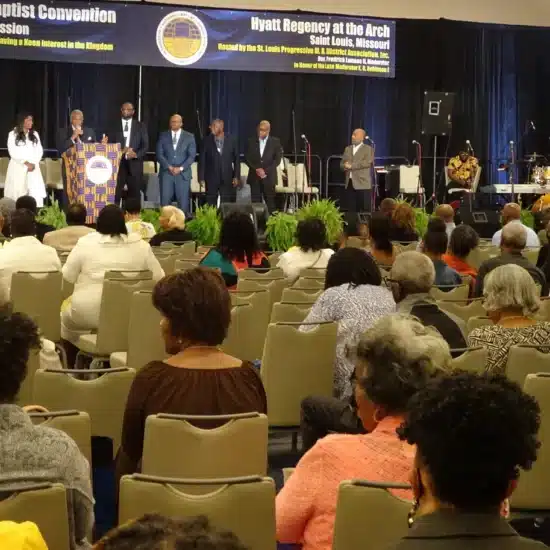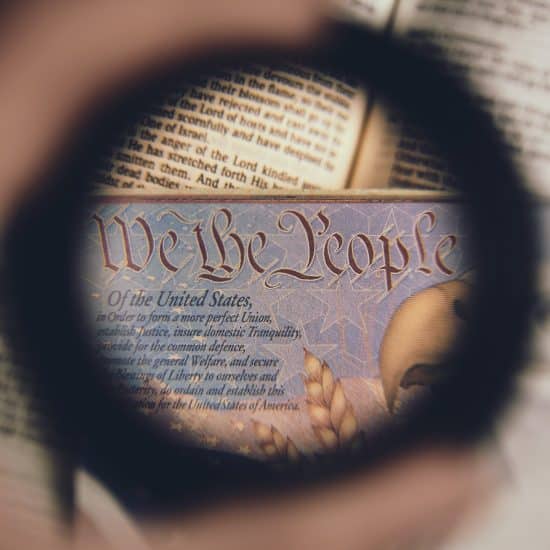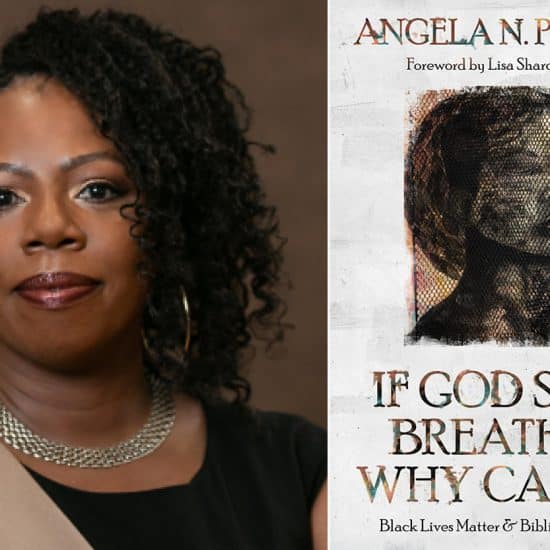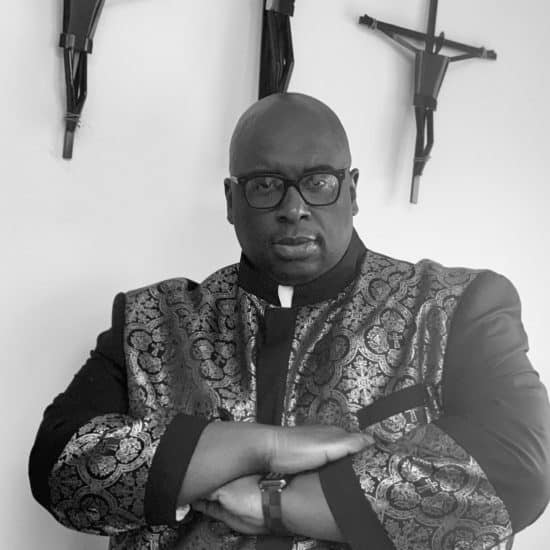On Aug. 9, 2014, the city of Ferguson, Mo., moved from being a little-known St. Louis suburb to an international headline. Media outlets, politicians and activists from around the nation descended on the community following police officer Darren Wilson’s shooting of Michael Brown, an unarmed African-American teenager.
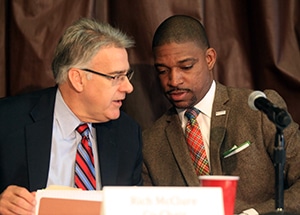 Ferguson Commission co-chairs Richard “Rich” McClure (left) and Starsky Wilson confer during the initial meeting of the Ferguson Commission appointed by Missouri Gov. Jay Nixon. (Brandon King, KRHS Media)The shooting and riots that followed led Missouri Gov. Jay Nixon to create the 16-person Ferguson Commission to study race and other issues in metro-St. Louis and to offer policy recommendations.
Ferguson Commission co-chairs Richard “Rich” McClure (left) and Starsky Wilson confer during the initial meeting of the Ferguson Commission appointed by Missouri Gov. Jay Nixon. (Brandon King, KRHS Media)The shooting and riots that followed led Missouri Gov. Jay Nixon to create the 16-person Ferguson Commission to study race and other issues in metro-St. Louis and to offer policy recommendations.
The governor’s decision may mean St. Louis could help lead the broader nationwide conversation in the wake of similar incidents in New York City, North Charleston, S.C., Baltimore, and then the killing of nine African Americans at a Charleston church and the debate over the Confederate battle flag.
And the church must lead in racial change, commission co-chairs believe.
Nixon created the commission “as an independent body to study the underlying issues raised by events in Ferguson and to issue a report with specific policy recommendations by Sept. 15, 2015,” press secretary Scott Holste explained.
“The members of the Ferguson Commission represent a rich diversity of life experience and points of view, and include pastors, public servants, business owners, teachers, attorneys, not-for-profit leaders, police officers and activists,” he said.
“The Ferguson Commission will be responsible for issuing a report with policy recommendations in the following areas: citizen-law enforcement interaction and relations; racial and ethnic relations; municipal government organization and the municipal court system; and disparities in areas including education, economic opportunity, housing, transportation, health care, child care, business ownership, and family and community stability.”
Rich McClure, co-chair of the Ferguson Commission, sees the group as “a place for discussion.”
“The Commission fundamentally is a place for interactive democracy,” he added. “The Commission has been a work of bringing people together.”
In July, the group voted to approve nearly 150 “calls to action.” McClure noted the “next step is prioritizing them.” He hopes these items will “garner attention of the region” and spark “opportunities to engage in positive change.”
The recommendations are to guide efforts for the “long haul,” he added. “These are long-term issues, not issues that developed overnight. August the 9th did not cause our region’s problems; August the 9th revealed the problems in our region. We need to stay focused on the long-term issues.”
Starsky Wilson, pastor of Saint John’s Church in St. Louis and the other co-chair, warned against focusing merely on Ferguson or just one incident. He argued various economic, social and justice issues are connected.
“The work of the Ferguson Commission is not just for the city of Ferguson,” he said as he described the community as “just one small hamlet of 91 municipalities in the St. Louis County region.”
“Rather, what we find are issues that all of us would find in our respective communities if we dared pay enough attention,” he explained. “We’ve been called to pay attention. We learned that these issues of poverty, these issues of policing are all connected together on the same landscape.”
Too many people have accepted the “deceptive tranquility of the American suburb” that “is uniquely tied to the fidelity of the theological myth of the American dream,” Wilson argued. He added that such a “civil religion” prevents people from seeing the issues involved.
“We’ve got a theological problem,” he added.
Wilson urged churches to talk about racism — which he thinks is a more important topic than race — but also to look for ways to act. Discussion of racism gets to the heart of problems that are preventing reconciliation, he explained.
McClure, who called the opportunity to work on the Commission “an incredible blessing,” also pointed to the importance of the faith community.
“This has shown me that there is real work for people of faith to do, real work to do together,” he said. “When we see the inequality, when we see the evidence of systemic racism, we are called as people of faith to react to that, to engage that.
“It is a primary purpose [of churches] to bring healing and bring reconciliation,” he added. “We take the notion of love your neighbors very seriously.”
McClure, Wilson and the rest of the Ferguson Commission will continue working to complete their final report for its Sept. 15 release.
Findings, recommendations and meeting transcripts can be found online at stlpositivechange.org.
Brian Kaylor is a freelance writer and author based in Jefferson City, Mo.

